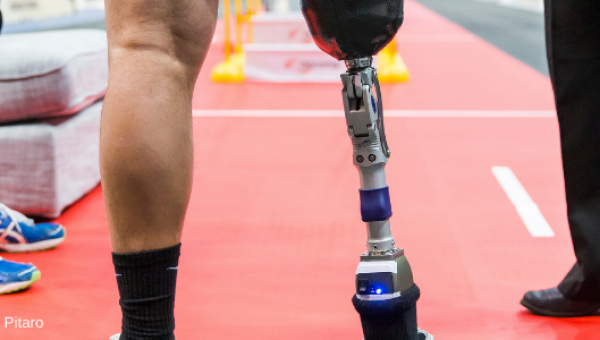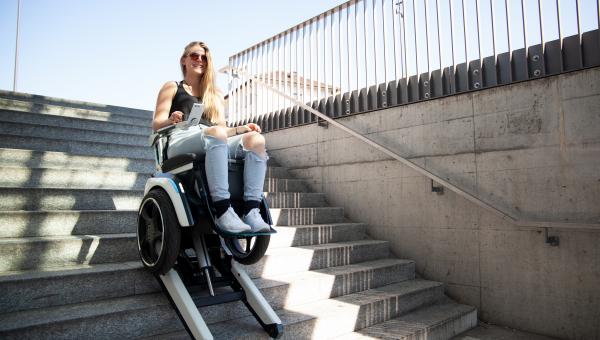Regained hand mobility

EPFL spin-off Emovo Care has developed an exoskeleton to enable people with paralysed hands to grasp objects. The device is set to be launched on the market next year.
Over 12 million people worldwide suffer from a stroke every year (source: World Stroke Organization), and half of them are left with at least some limitations on the use of their hands. Various portable robotic systems and human-machine interfaces have been developed to address this challenge in recent years, but they are often too complex or expensive.
Co-developed with 150 clinicians and patients
The EPFL spin-off Emovo Care has now developed an exoskeleton that allows people with paralysed hands to grasp and release objects again.
Over 150 people – patients, therapists and neurologists – helped co-develop the novel medical device through longitudinal studies and guided discussions. Tests in hospitals and rehabilitation centres have already been successful. The exoskeleton is currently being tested at the Centre Rencontres de Courfaivre in the Swisiss Jura region, and in Italy and Austria, where around 30 brain injury patients are participating in a clinical study.
The natural sensation of moving the hand
The exoskeleton is intended for people who can no longer or only partially move one of both of their hands after a stroke or accident. The device consists of cables attached to the back of the hand which function like tendons along the fingers and are connected to a motor. When the patient activates the device via a remote control, the artificial tendons exert a slight pressure on the index and middle fingers. This allows the patient to grasp objects like a small ball, a glass or a spoon and to control the strength of the grip independently. A second button on the remote control triggers the inverse command, causing the fingers to stretch and release the object. According to the creators, the system provides a natural sensation of moving the hand.
I remember the first time I tried out this device. The next day, after seven years of complete immobility, I was able to move my index finger two millimetres without help – it was amazing.
A personal story
For co-founder and CEO Luca Randazzo, who developed this technology while completing his PhD thesis and conducting postdoctoral research at the EPFL Biorobotics Laboratory, Emovo Care is more than just a project. His sister suffers from a disability, and Randazzo started thinking early on about how new technologies could help people in her situation regain some freedom of movement.
According to an EPFL press release, the company recently received the ISO certification required to market medical devices. It is currently raising funds to bring the device to market next year.




